Dearest brethren, sons and daughters!
Today’s feast invites us to meditate about Saint Joseph, Our Lord Jesus’ legal and foster father. Because of that function which he performed in regard to Christ during his childhood and youth, he has been declared Patron or Protector of the Church, which continues Christ’s image and mission in time and reflects them in history.
At first sight there seems to be no material for a meditation on Joseph, for what do we know of him, apart from his name and a few events that occurred in Our Lord’s childhood? The Gospel does not record a single word from him; his language is silence. It was his attention to the angelic voices which spoke in his sleep; it was that prompt and generous obedience which was demanded from him; it was manual labour, in the most modest and fatiguing of forms, which earned Jesus the reputation of being “the son of the carpenter” (Mt. 13:55). There, is nothing else known of him, and it might well be said that he lived an unknown life, the life of a simple artisan, with no sign of personal greatness.
But that humble figure which was so near to Jesus and Mary, Christ’s Virgin Mother, he who was so intimately connected with their life and so closely linked with the genealogy of the Messias as to be the fateful and conclusive representative of the descendants of David (Mt. 1, 20), is revealed as being full of significance if we look at him attentively. He is seen truly to possess those qualities which the Church attributes to him in her liturgy, which the devotion of the faithful also attributes to him, and which gave rise to a series of invocations that have taken the form of a litany.
A celebrated modern shrine of the saint, erected through the efforts of a simple lay brother, Brother André of the Congregation of the Holy Cross, at Montreal in Canada, illustrates those qualities in a series of chapels arranged behind the high altar. All the chapels are dedicated to Saint Joseph in honour of the many titles which have been offered to him, such as Protector of Childhood, Protector of Spouses, Protector of the Family, Protector of the Workers, Protector of Virgins, Protector of Fugitives, Protector of the Dying…
If we look carefully into this life that was apparently so unremarkable, we shall find that it was greater and more adventurous, more full of exciting events, than we are accustomed to assume in our hasty perusal of the Gospel story. The Gospel describes Saint Joseph as a Just Man (Mt. 1:19). No greater praise of virtue and no higher tribute to merit could be applied to a man of humble social condition who was apparently far from being equipped to perform great deeds. A poor, honest, hardworking, perhaps even timorous man, but one with unfathomable interior life, from which very singular directions and consolations came, bringing him also the logic and strength that belong to simple and clear souls, and giving him the power of making great decisions, such as that decision to put his liberty at once at the disposition of the divine designs, to make over to them also his legitimate human calling, his conjugal happiness, to accept the conditions, the responsibility and the burden of a family, but, through an incomparable virginal love, to renounce that natural conjugal love that is the foundation and the nourishment of the family; in this way he offered the whole of his existence in a total sacrifice to the imponderable demands raised by the astonishing coming of the Messias, to whom he was to give the everlastingly blessed name of Jesus (Mt. 1:21), whom he was to acknowledge as the effect of the Holy Spirit, and his own son only in a juridical and domestic way.
So Saint Joseph was a “committed” man, as we might say nowadays.
And what commitment! Total commitment to Mary, the elect of all the women of the earth and of history, always his virgin spouse, never his wife physically, and total commitment to Jesus, who was his offspring only by legal descendance, not by the flesh. He had the burdens, the responsibilities, the risks and the labours Surrounding the holy family. His was the service, the work, the sacrifice, in the shadows of that gospel picture in which we love to meditate on him; and we are certainly not mistaken, for we all know him now and call him Blessed.
This is Gospel in which the values of human existence take on a different dimension from that with which we are accustomed to appreciate them. What is little becomes big, and in this connection we do well to remember Jesus’ fervent words in the eleventh chapter of Saint Matthew: “I give thee praise, O Father, Lord of Heaven and earth, because thou hast hidden these things (the things or the kingdom of the Messias!) from the wise and learned, but hast revealed them to little ones”.
In the Gospel’s account, what is lowly becomes worthy to be the social condition of the Son of God made son of man; that which is elementary and the product of fatiguing and rudimentary handwork served to train the maker and continuator of the cosmos in the skills of human hands (cf. Jn. 1:3; 5:17), and to give humble bread to him who was to describe Himself as “the Bread of Life” (Jn. 6:48); what was lost for love of Christ is here rediscovered (cf. Mt. 10:39), and whoever sacrifices his own life for Him in this world saves it for everlasting life (Jn. 12:25).
Saint Joseph was the type of the message of that Gospel that Jesus was to announce as the programme in the redemption of mankind, once he left the little workshop at Nazareth and began his mission as prophet and teacher. Saint Joseph is the model of those humble ones that Christianity raises to great destinies, and he is the proof that in order to be good and genuine followers of Christ there is no need of “great things”; it is enough to have the common, simple, human virtues, but they need to be true and authentic.
Our meditation now shifts from the humble Saint to our own personal circumstances, as is usual in the practice of mental prayer. We now turn to make a comparison and I contrast between him and ourselves; we have no reason to feel proud of the comparison, but we can derive some good suggestion from it for imitating him in some way which our own life condition allows, in our spirit and in concrete practice of those virtues which are so vigorously depicted in the Saint, and one especially, poverty, of which there is so much talk nowadays. And let us not be upset by the difficulties which poverty brings with it today, in this world which is all devoted to conquest of economic wealth, as if poverty were in contradiction with the line of progress which must be followed, a paradox, an unreality in a society of welfare and consumption.
Let us think again of Saint Joseph in his poverty and hard work, all his energy engaged in the effort of earning something to live on, and let us then remember that economic goods are indeed worthy of our Christian interest, on condition that they do not become ends in themselves, but are understood and used as means to keep going life which is directed towards other and higher goods, on condition that economic goods are not sought after with greedy egoism, but be rather a source and stimulus of provident charity, on condition again that they be not used as authorization for soft and easy indulgence in the so-called pleasures of life but rather be used for the broad and honest interests of the common good.
This Saint’s laborious and dignified poverty, can still be in excellent guide for us to follow the path traced by Christ’s footsteps in the modern world, and can also eloquently instruct us in positive and honest well-being, so that we may avoid losing Christ’s path in the complicated and giddy world of economics, to avoid going too far on one side into tempting ambitions of conquest of temporal riches, and too far on the other side, into making use of poverty for ideological ends, as a power to rouse social hatred and systematic subversion.
So, Saint Joseph is an example for us, and let us try to imitate him; and we shall call upon him as our protector, as the Church has been wont to do in these recent times, for herself in the first place, for spontaneous theological reflection on the marriage of divine with human action in the great economy of the Redemption, in which economy the first, the divine one is wholly sufficient to itself, but the second, human action, which is ours, though capable of nothing (cf. Jn. 15:5), is never dispensed from humble but conditional and ennobling collaboration.
The Church also calls upon him as her Protector because of a profound and most present desire to reinvigorate her ancient life with true evangelical virtues, such as shine forth in Saint Joseph. Finally, the Church invokes him as her Patron and Protector through her unshakeable trust that he to whom Christ willed to confide the care and protection of His. own frail human childhood, will continue from heaven to perform his protective task in order to guide and defend the Mystical Body of Christ Himself, which is always weak, always under attack, always in a state of peril. Finally, we call upon Saint Joseph for the world, trusting that the heart of the humble working man of Nazareth, now overflowing with immeasurable wisdom and power, still harbours and will always harbour a singular and precious fellow-feeling for the whole of mankind. So may it be.
Pope Paul VI
Homily on the Feast of Saint Joseph
27 March 1969
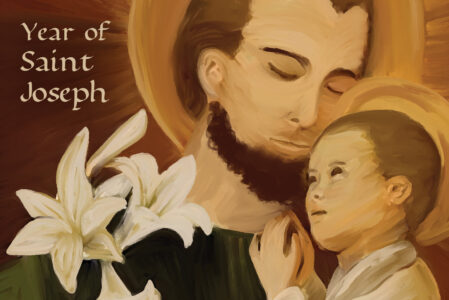






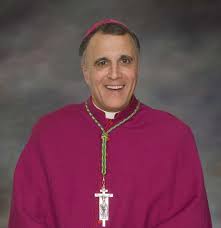
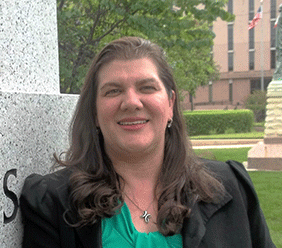
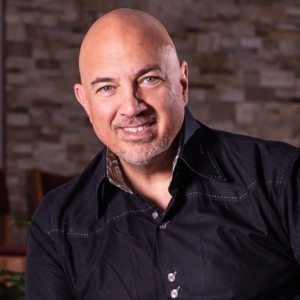
 Kimberly Kay Cox
Kimberly Kay Cox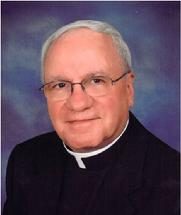
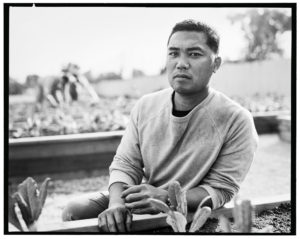





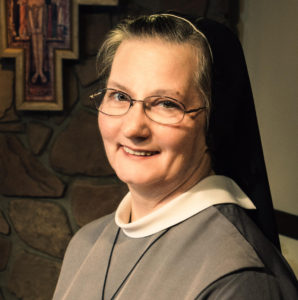
 Mark Mogilka
Mark Mogilka




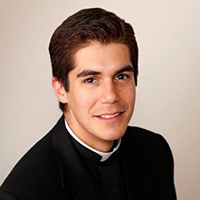
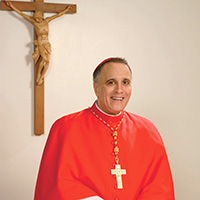

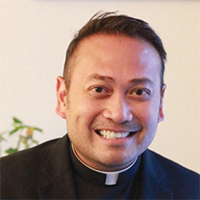






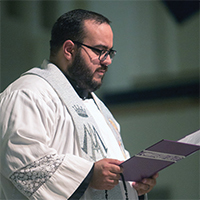
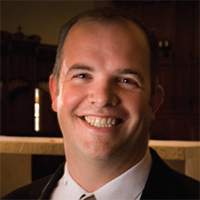


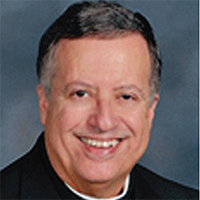

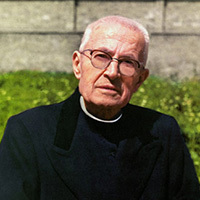


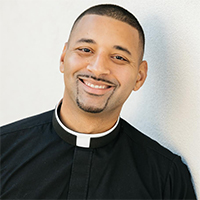




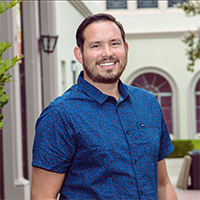
 Armando Cervantes
Armando Cervantes Anna Betancourt
Anna Betancourt
 Andrea Chavez-Kopp
Andrea Chavez-Kopp